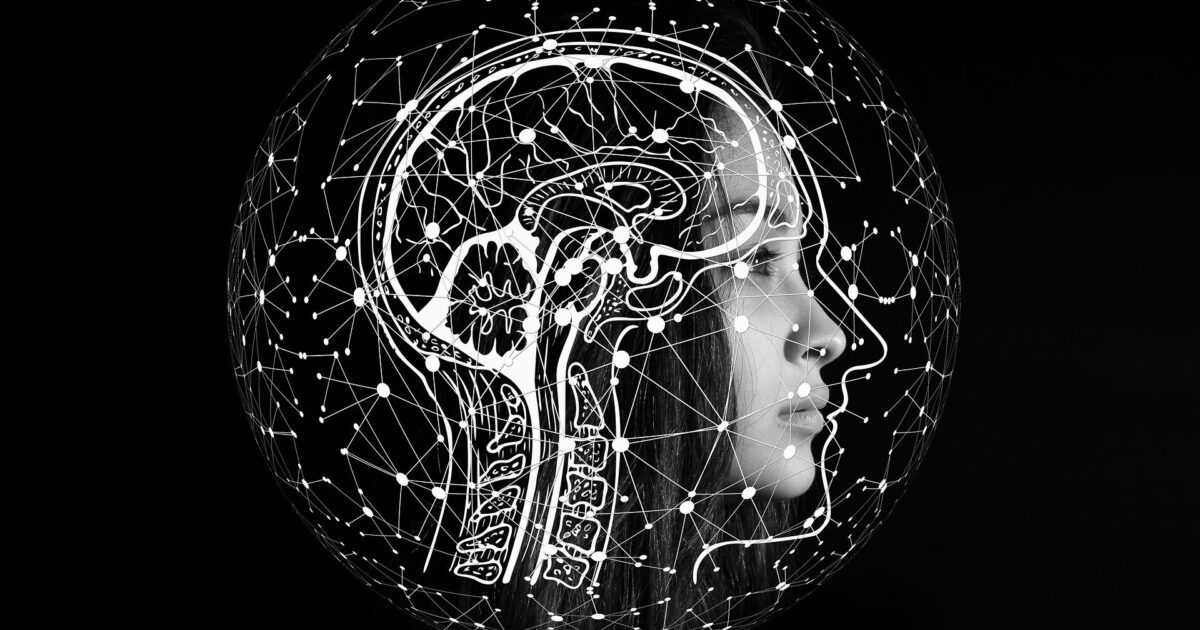We can say a lot about thought police and censorship these days.
But did you know technology is already in place that can monitor your brain activity?
Nita Farahany discussed “brain transparency” at last week’s World Economic Forum.
You can check out the video below:
https://twitter.com/loffredojeremy/status/1619786795943710721?s=20&t=EWRfjMCJBTUw6voYQCZTVQ
With this tech, your boss could check your brain activity at work.
Or the government could collect brain wave data for criminal investigations.
And no – it doesn’t require computer chips in your body.
Wearable devices like these headphones monitor brain waves according to Fast Company:
The headphones use a ring of sensors around the ear pads to sense your brain’s electrical signals. Based on that information, they can subtly hike up noise cancellation as you begin to reach deeper levels of focus.
According to Ramses Alcaide, Neurable’s cofounder and CEO, the headphones’ corresponding app uses machine learning algorithms to understand when your brainwaves resemble the patterns produced by the brain when it’s concentrating, or if they indicate you’re distracted.
Meanwhile, the software that runs in the corresponding app provides analytics data on the times of day when you’re most productive and when you need a break.
Farahany mentioned ear pods launching this year that could tell an employer if the worker is paying attention or not.
Is this shocking?
Think about surveillance measures taken by employers in recent years.
BBC had this to say:
With the rise in remote work has come a surge in workplace monitoring – some 2022 estimates posit the number of large firms monitoring workers has doubled since the beginning of the pandemic.
“Managers are increasingly interested in using software to monitor employees’ keystrokes, activities and attention in new ways,” says Levy. She adds some are even doing “more fine-grained data collection about workers’ communications – since so much more of that happens on digital channels rather than face-to-face – and bodies, through wearable technologies and biometrics”.
“The issue is often that once you’re monitoring for one reason, it’s very easy to piggyback other rationales onto that,” she says.
It’s not just about monitoring what workers are doing on the job.
Supporters of the tech say it would make the workplace safer.
The Blaze shared more on Farahany’s presentation:
According to Farahany, it won’t just be white-collar environments where workers’ minds will be policed and tracked in this fashion.
With the purported aim of preventing distracted-driving accidents on the road, Farahany suggested that truck drivers could be equipped with hats containing embedded electrode censors that would score what stage of alertness they are at in any given moment.
Concerning the prospect of using brain surveillance to know when to preemptively intervene, Farahany underscored, “We as a society should want that.”
Of course, waking a sleeping driver is a good idea.
But can we be sure this tech and its users will stay in their lane?
Popular Mechanics predicted how far this tech will go.
It won’t be long before your boss knows exactly what you’re thinking.
“Artificial intelligence has enabled advances in decoding brain activity in ways we never before thought possible. What you think, what you feel—it’s all just data—data that in large patterns can be decoded using artificial intelligence.”
“All just data” – sounds harmless enough, right?
A recent CBS article discussed data privacy concerns:
Data collection, and the sale of that data, is a pretty unregulated industry. And you may be shocked at how much data collection you’ve agreed to — and how easily it can get into the hands of hackers and scammers.
That data is collected legally various ways. From the ads you click on, to the sites you surf, even the apps you download and the email or text alerts you sign up for to get a discount at your favorite stores.
But what happens when our brain data is collected and sold?
Think about all the Terms of Service we agree to without reading the fine print.
How many apps, devices, and websites use our data?
What about the time a Roomba vacuum took photos of a woman on the toilet that ended up online?
A cautionary tale about why protecting your data privacy (and all types of privacy) is important. 😳 https://t.co/HIcBPqJpoG
— DuckDuckGo (@DuckDuckGo) January 23, 2023
Could the same thing happen to brain data collected by these devices?
When asked about possible harm, Farahany mentioned “a right to cognitive liberty.”
But Farahany admitted it’s “almost impossible to keep up with any kind of regulation.”
There’s nothing to fear – your thoughts won’t be policed any time soon.
It’s not like the FBI or NSA have ever ignored the Fourth Amendment, right?
FISA 702 is set to expire later this year. A large, bipartisan group of us already believes we shouldn’t renew 702 without aggressive reform. The DNI’s contempt for the Senate makes it even clearer that our intel agencies need their wings clipped. https://t.co/cEHRDNWcJM
— Mike Lee (@BasedMikeLee) January 31, 2023



Join the conversation!
Please share your thoughts about this article below. We value your opinions, and would love to see you add to the discussion!